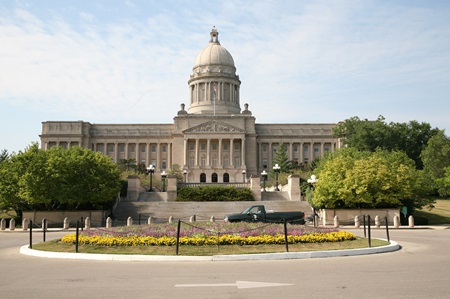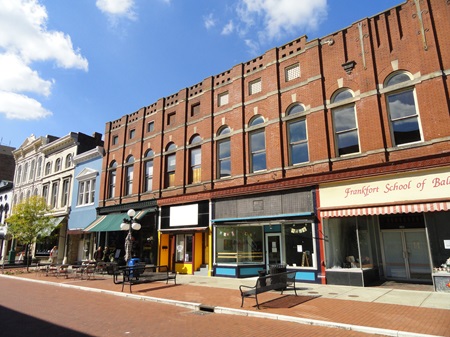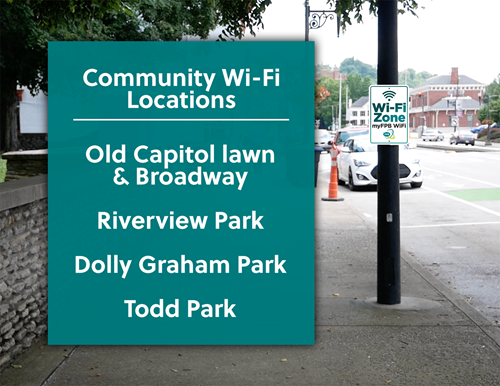
Fast, affordable Internet access for all.

A looming new bill by Republican Kentucky State Senator Gex Williams could undermine decades of broadband progress made in the state’s capital city by a popular locally-owned utility, Frankfort Plant Board (FPB).
Home to 28,000 Kentuckians, local residents and utility officials in Frankfort are incensed at the bill, which they believe will unnecessarily result in higher rates, fewer jobs, and less broadband competition overall.
Williams is circulating a bill in the Kentucky state legislature that, if passed, would force FPB to sell its broadband division to a private-sector company and subject it to more stringent oversight requirements. In guest editorials circulated in the local press, Williams insists his goal is to “rein in” the FPB, which he deems part of a “runaway” government that lacks accountability.
But there’s no evidence for Williams’ allegations of limited accountability, and locals and activists alike believe that the legislator is simply running interference for regional broadband monopolies upset by the added competition created by the popular, publicly-owned utility.
Another Community-Owned Solution Addressing Market Failure
Like many local U.S. communities, Frankfort sees a notable dearth of meaningful broadband competition, resulting in patchy broadband coverage, slow speeds, high prices, and abysmal customer service. Enter the Frankfort Plant Board, which has been deploying affordable fiber access across the community under the NEXTBAND brand.

As a result, locals have access to broadband speeds and prices that are a notable improvement over local giants like AT&T and Charter, including symmetrical 300 megabit per second (Mbps) service for $50 a month; symmetrical 500 Mbps service for $65 a month; or symmetrical gigabit per second (Gbps) service for $80 a month.
Unlike service from both regional monopolies, the utility’s broadband service doesn’t come with hidden fees, usage caps, or long-term contracts.
“We started distributing television in Frankfort in 1952 and have iterated over the years, growing out into the county, building a full service network in the late 1990s, went all-digital in video in 2009, and finally activating our first fiber to the home customer in 2021,” Harvey Couch, a Telecommunications Product Manager at Frankfort Plant Board, told ILSR.
Frankfort Plant Board currently serves 20,895 electric customers, 16,222 water customers, 16,306 broadband subscribers, and 8,630 cable TV subscribers.
From coast to coast, publicly-owned utilities have increasingly been shifting their focus to broadband, often leveraging experience gleaned a century earlier during efforts at rural electrification. Not only are the utilities shoring up broadband access gaps caused by market failure, the upgrades help improve electrical grid maintenance and repair.

A Legislative ‘Solution’ In Search Of An Actual Problem
The Frankfort Plant Board is currently one of 12 publicly-owned utilities in Kentucky providing broadband services, but it’s the only one targeted by Williams’ looming legislation. Williams doesn’t live in the community his legislation targets, and the proposal has no meaningful support among Frankfort locals.
According to leaked details of the legislation, the bill would give the Frankfort City Commission a deadline of Dec. 31, 2024 to sell the utility’s broadband wing to a private company.
The bill also requires that FPB seek approval from the city commission before paying off expenses, and give the city commission control over any surplus FPB revenues.
The point of the bill is purportedly to shore up the utility’s accountability to the public, but the utility insists it’s a solution in search of a problem. Especially given that board members are ratified by the city commission and limited to four-year terms, all board meetings are televised, and all utility records are public in accordance with the state’s open records law.
“In terms of accountability, I don’t know where else you go with that,” FPB board chair John Cubine told the Kentucky Lantern. “I’d like to understand where he says it’s a runaway operation.”

Numerous Franklin County and Frankfort City elected officials are also opposed to the push. On December 19, Frankfort Mayor Layne Wilkerson and the Board of Commissioners passed a resolution “giving unwavering support of the Frankfort Plant Board and its Employees.”
“In my opinion, a sale or transfer of the FPB telecommunications business is currently not in our community’s best interests,” Frankfort Mayor Layne Wilkerson said of the proposal. “Privatization has risks: potentially higher rates or reduced service quality, and less accountability. Under private ownership, the utility’s focus would shift from public service to generating profits. This change could undermine the community-focused spirit for which FPB is known.”
Community-Owned And Operated
For its part, FPB is urging locals to contact their local representatives to oppose the legislation, arguing that it will drive up consumer costs, eliminate local jobs, degrade the quality of local broadband and television service, and disrupt local access to community-based programming provided via the utilities’ public access television channel.
“Why is an outsider from Boone County proposing to take away customer control from this community?” the utility’s website asks.
“FPB is a non-profit public utility owned and operated by our customers. You should be the only ones who have the voice to make the decision to sell FPB. Is Sen. Williams saying that he knows better than our entire community what is best for us when he doesn’t even live here?”
Data consistently indicates that community-owned broadband networks provide faster, cheaper broadband access than many regional private giants–while also being more directly accountable to local residents.
For their part, FPB leaders say that hundreds of locals have contacted the City Commission to express dismay on the legislative attack on a utility that has been a cornerstone of the community for the better part of 80 years.

“Sen. Williams’ proposed legislation has stirred serious concern with our ratepayers and customer-owners,” FPB General Manager Gary Zheng said in a statement. “The proposal is a terrible idea that would hurt the people of Frankfort. The people pushed back and last night Sen. Williams got an answer – an unequivocal message from our leaders that Frankfort is not for sale.”
Neither local officials nor the utility have been informed when the legislation–which is currently being circulated by Williams in a bid to cultivate support–will be formally tabled or voted on. If the gambit succeeds in Frankfort, such efforts could be duplicated in other markets where community-owned utilities have made meaningful progress in shoring up affordable access.
“I encourage municipal utilities and local governments across the state to beware,” Zheng said. “If we don’t stop this now, you could be next.”
Header image of Not for Sale photo courtesy of FPB website
Inline image of Kentucky State Capitol building courtesy of Scott Beale, Attribution-NonCommercial-NoDerivs 2.0 Generic
Inline image of downtown Frankfort Kentucky courtesy of Wikimedia Commons, CC0 1.0 Universal
Inline image of FPB WiFi spots courtesy of FPB website
